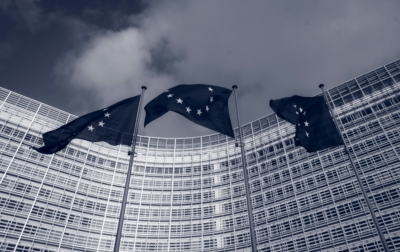Last Friday, December 15, after a 48-hour marathon ‘trilogue’ of negotiations between the three EU institutions a historic deal reinforcing beneficial ownership transparency within the EU has finally been signed. The revisions to the 4th Anti-Money Laundering Directive made in the wake of the Panama Papers establish public access as a principle. From now on, EU Member States will have the obligation to publicly disclose beneficial ownership information of companies and trusts owning companies.
The benefits of greater transparency are huge in terms of preventing and detecting money laundering as demonstrated by the positive impact of transparency through recent leaks and media investigations. In less than a year, the Panama Papers have triggered, at least 150 inquiries, audits or investigations into the revelations in 79 countries worldwide. Governments have been investigating more than 6,500 individuals and companies, and have recouped at least $500 million in unpaid taxes or asset seizures worldwide.
Through closer public scrutiny, the new public registers of beneficial ownership data shall act as a clear deterrent to abuse and other opportunistic behaviours that have thrived in the prevailing environment of global financial secrecy. It will also ensure quick and guaranteed access to the data by foreign competent authorities during cross-border investigations. Finally, there is also the case for greater transparency on beneficial ownership seen by the business community, as a way to mitigate their legal, financial and reputational risks when they invest in, buy from, or partner with, another company.
However, while the new legislation agreed last week sets the bar higher than any other international standard, a number of loopholes exposed in the Panama Papers will remain:
Coverage of the new beneficial ownership registers
Newly created central beneficial ownership registers would not cover all entities and arrangements operating within EU borders. Offshore trusts or foreign companies set up by EU citizens would not all be covered by the new rules. Under these new rules, a number of the schemes revealed in the Panama and Paradise Papers would not have been caught.
Trust transparency
Despite the evidence of the abuse of trusts, the new rules fail to provide full beneficial ownership transparency for these particular financial instruments. Only information on trusts owning a controlling interest in foreign companies will be made accessible through written requests. In order for this to work effectively, Member States will need to make sure that public access is not hampered by excessive administrative hurdles and delays.
Furthermore, access to data on other trusts will be limited to those whom can demonstrate a ‘legitimate interest’, an ill-defined notion which leaves enough margins of maneuver for Member States to interpret it in a restrictive manner as we have seen in the past. Although the text shall provide some guidance on how legitimate interest shall be understood, it will not provide any common legal definition of the concept.
It is vital that these loopholes are addressed in the transposition and implementation phase at the national level, to prevent trusts from becoming the ultimate black box and new favorite vehicle for corruption and money laundering.
Open data
The text also does not set any minimum standard in terms of conditions of access to the data. The minimum should have been to provide free access and in open data in order to allow for easy data harmonisation and cross-referencing across EU registers and other relevant domestic and foreign databases (tax registers, land registers, PEPs lists, sanctions lists, etc.). The next phase in the fight against money laundering will be to link up all this information so that enforcement agencies, civil society and citizens can have an overview of financial flows and use new technologies to expose potential corruption risks.
Other high-risk instruments and factors
The new rules also overlook a number of high-risk instruments commonly used to disguise the identity of beneficial owners such as nominees and bearer shares. Equally important, the new text fails to fully address other issues related to the fight against money laundering. For example, provisions on anti-money laundering checks on applicants for golden visas – high-risk schemes granting fast-track citizenship or residence permit to wealthy foreign investors – are relegated to the Annex.
Transparency International EU are calling for EU Member States to address these loopholes when implementing the Anti-Money Laundering Directive into national laws.




